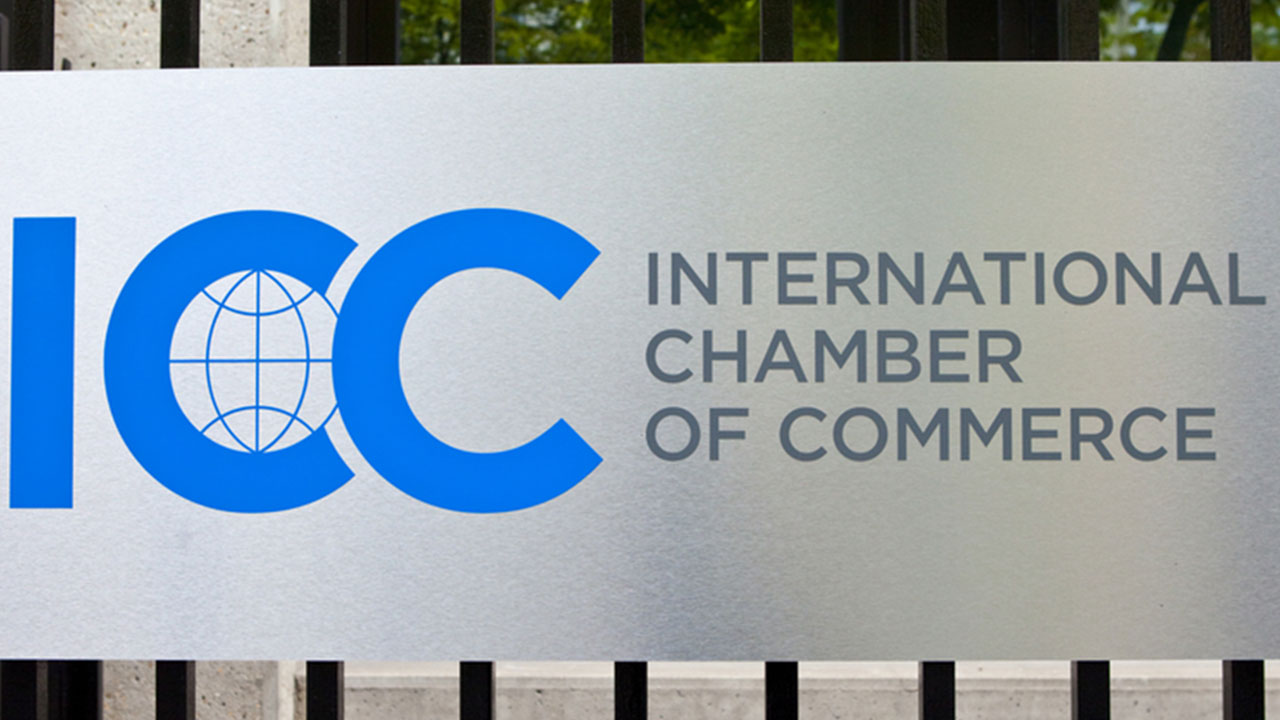Banking
60% of Banks Move Towards Greater Digitalisation—Survey

By Modupe Gbadeyanka
A new survey by the International Chamber of Commerce (ICC) has shown that 60 percent of banks have implemented, or to be in the process of implementing, technology solutions to digitalise their trade finance operations.
However, in the 10th annual Global Survey by the ICC titled ‘Global Trade: Securing Future Growth,’ only 9 percent agreed that the solutions implemented have so far led to a reduction of time and costs in trade finance transactions.
In what the report describes as a “reality check”, 30 percent of respondents say their banks remain 1-2 years away from implementing technology solutions, while 7 percent say digitalisation is not on their agenda at all.
A heavily paper-based industry with transactions worth over $9 trillion in 2017, trade finance is often noted to be ripe for digital disruption.
The multitude of documents and players (banks, customs authorities, shippers, and insurers, among others) involved in trade finance transactions, though, make it difficult for the industry to digitalise quickly.
In the findings, 65 percent of respondents say that physical paper has to some extent been removed in the issuance/advising and settlement/financing of documentary transactions.
A notable exception is the document verification process, where 52 percent of respondents say that paper has not been removed at all.
Commenting on the development, ICC Secretary General, John W.H. Denton AO, disclosed that, “Digitalisation in the trade finance sector will boost economic growth and sustainable development. Digitalisation will make trade more inclusive.
“The ICC Global Survey gives us invaluable insight into the practical experiences and real challenges of business as we seek to take advantage of game-changing technologies and advance these broader shared goals.”
Conducted annually, the ICC Global Survey report is the world’s most authoritative review of the trade finance industry, based on exclusive information from over 250 banks in more than 90 countries.
The survey results are bolstered by contributions from an international array of leading voices on trade and finance, including experts from the World Bank, the Boston Consulting Group (BCG) and the World Trade Organization.
An industry ripe for disruption
A single trade finance transaction can require over 100 pages of documents, with an estimated four billion pages of documents currently circulating in documentary trade. According to BCG estimates, digitalisation could cut trade finance costs by up to $6 billion in 3-5 years and boost banks’ trade finance revenues by 10 percent.
The ICC Global Survey figures demonstrate that a majority of banks are moving towards greater digitalisation, recognising its potential gains, yet only a minority have so far seen technology solutions increase their operational efficiency.
“Adapting global trade finance rules to the digital era will play a pivotal role in enabling banks to capitalise on new technologies,” said Olivier Paul, Head of Policy at ICC’s Banking Commission, which launched a digitalisation working group in June 2017.
“ICC rules underpin over $1 trillion of transactions each year. Now, we are working to both ensure these rules are ‘e-compatible’ and establish a set of standards to enable digital connectivity for trade finance service providers,” Paul added.
Bullish on future growth despite compliance and pricing concerns
Among the many other Global Survey findings, responses show that banks are bullish on future trade finance growth trends. Nearly three quarters of banks presented an optimistic outlook for the next 12 months, with respondents headquartered in Africa and Asia Pacific the most positive, at 89% and 81 percent respectively.
Looking ahead into the medium and longer term, only 5 percent of respondents consider traditional trade finance a strategic area of focus in the next 3-5 years. In contrast, 72 percent consider traditional trade finance a priority in the next 12 months.
Nearly half of respondents agreed that attracting non-bank capital, leveraging emerging technologies such as blockchain and shifting geographical coverage were priority areas for the next 3-5 years.
When asked what potential obstacles banks saw to their future growth prospects, respondents’ answers were stark. 93 percent of respondents named regulation and compliance as a potential obstacle while 87 percent pointed to complying with counter-terrorism and international sanctions regulation.
The ICC Banking Commission has continuously advocated for banking regulation that avoids aggravating geographical disparities in trade finance coverage, specifically across poorer regions in Africa and South Asia.
In 2017, following ICC engagement with the United Nations (UN) and national governments, the UN officially recognised the estimated $1.5 trillion trade finance gap and pledged to carry out an official review of its underlying causes.
The impact of interest rates on international trade finance pricing was also noted by the Global Survey, with 35 percent of respondents, especially large institutions, affirming that rates were driving up the cost for clients. This was particularly notable in Africa and North America where 60 percent and 54 percent reported an increase in interest rates related to trade financing.
Yet, a total of 38 percent reported maintaining the same rates, suggesting that the rise in financing costs is at least partly driven by bank-specific pricing strategies.
Banking
S&P Forecasts 25% Credit Growth for Nigerian Banks in 2026

By Adedapo Adesanya
Nigerian banks are expected to post stronger credit growth of up to 25 per cent in 2026 while retaining positive profitability, according to a new outlook by S&P Global Ratings.
In its Nigerian Banking Outlook 2026, S&P said improved lending to key sectors of the economy alongside resilient non-interest income would help banks absorb the impact of regulatory headwinds and easing interest rates.
The ratings agency projected credit growth of between 20 and 25 per cent in 2026, driven largely by increased investments in oil and gas, agriculture and manufacturing.
It added that the outlook for lending was supported by expectations of moderating inflation and gradual monetary easing, following recent interest rate cuts by the Central Bank of Nigeria (CBN).
“We expect credit growth of about 20-25 per cent supported by investments in the oil and gas, agriculture, and manufacturing sectors. Although interest rates have started to decrease, profitability should stay resilient in 2026, supported by growth in non-interest income (NII) and lower provisions.
“We expect Nigerian banks to prove resilient and capable of preserving their profitability in 2026,” S&P said, noting that earnings would be supported by transaction driven fees, commissions and a still elevated cost of risk, even as margins come under pressure.
The ratings agency noted further that it expects nominal lending growth to remain high at about 25 per cent, supported largely by investments in the oil and gas sector, agriculture and manufacturing.
S&P said Nigerian banks would continue to benefit from rates that remain high relative to peers, supporting net interest margins while interest rates are expected to decline further in 2026.
“Although interest rates have started to decline, we expect rates to remain high relative to peers, which will continue to support banks’ net interest margins through 2026.
“We forecast the average return on equity (ROE) will normalise at 20-23 per cent in 2026 compared to 25 per cent estimated for 2025, while return on assets will decline marginally to 3.0-3.1 per cent from an estimated 3.3 per cent in 2025. Profitability will be supported by still high interest margins, growing NII, and slightly lower provisions, while capital issuance will increase the equity base leading to a lower ROE.
“Although interest rates have started to decline, we expect rates to be high relative to peers, which will continue to support the banks’ net interest margins through 2026. We forecast an average margin drop of about 50bps to 100bps in 2026, as banks’ margins will continue to benefit from higher yields on government securities and large recourse to low-cost customer deposits.”
Banking
CBN Targets Reforms to Ease Compliance Burdens on Fintech Firms

By Aduragbemi Omiyale
To ease regulatory compliance burdens on financial technology (fintech) companies, the Central Bank of Nigeria (CBN) is considering some strategic reforms through a policy known as the Single Regulatory Window.
In its 2025 Fintech Report, the central bank said this scheme will significantly reduce time-to-market for new digital financial products by streamlining licensing and supervisory processes across multiple agencies.
The CBN said there would be a shared regulatory infrastructure in form of a Compliance-as-a-Service model to cut down duplicative reporting, ease the burden on regulated fintechs, and enhance supervisory visibility.
The apex bank said it came up with this idea after being aware of some challenges stakeholders, especially operators, go through in the ecosystem.
The bank said fintech firms remain a critical leg in its financial inclusion drive in Nigeria and must be supported to expand their operations to achieve the goal.
The CBN report showed that 62.5 per cent of fintech firms lamented how regulatory timelines materially affect product rollouts, while over one-third noted that it takes more than 12 months to bring a new product to market, largely due to compliance bottlenecks.
“Stakeholders cited delays in approvals and ambiguity in regulatory guidelines as their most pressing concerns,” a part of the report disclosed.
The report recommended “exploring models for a Single Regulatory Window to simplify multi-agency compliance processes and reduce time-to-market.”
It was also suggested that to address the issues, the bank must review “approval timelines and operational guidelines.”
In addition, the central bank was advised to either review the PSB framework or introduce a dedicated digital banking licence that would enable inclusive lending under stronger prudential oversight.
“A dedicated digital bank licence may be a more effective pathway for inclusive lending than expanding the PSB mandate,” the respondents suggested.
As for digital assets, the CBN signalled a shift towards a more nuanced regulatory framework for cryptocurrency, balancing innovation with financial integrity rather than imposing blanket restrictions, as fintechs acknowledged crypto’s potential to drive cost-effective cross-border transactions and strengthen remittance channels, while also warning of risks linked to illicit flows and consumer protection.
“There was broad agreement on the need for a risk-based, activity-focused regulatory framework,” the report stated, adding that regulators must avoid equating all crypto activity with criminality, especially as many scams originate offshore.
Banking
Onafriq, PAPSS to Launch Wallet-Based Outbound Payments from Nigeria to Ghana

By Modupe Gbadeyanka
A platform to enable cross-border intra-Africa payments for individuals, merchants, and traders in Nigeria and Ghana is being designed by Onafriq Nigeria Payments Limited in partnership with the Pan-African Payment and Settlement System (PAPSS).
The platform, currently in its pilot stage, is the first wallet-based outbound payments scheme, which is fully in Naira and instant, without relying on hard currency conversion.
The parties are working together with banks and mobile money operators in the West Africa nations.
The Central Bank of Nigeria (CBN) has already approved this initiative, which will benefit small and medium enterprises (SMEs), the real engine of intra-African trade, as they will now have access to a faster, cheaper way to reach customers and suppliers across the border.
By reducing barriers to cross-border trade, the new service will allow these businesses to grow their addressable markets and activity. From December 1, this service will be fully operational for a 6-month period.
Through the partnership with PAPSS, Onafriq, which is a CBN licensed payment service provider, is supporting the operationalization of the Africa Continental Free Trade Area (AfCFTA) mandate. The mandate itself is driving tariff-free trade for the 54 member states of AfCFTA. Within the partnership itself, Onafriq provides the mobile money rails, with an ecosystem consisting of over 1 billion mobile wallets.
Meanwhile, PAPSS brings a network of over 160 commercial banks, representing an ecosystem of more than 400 million bank accounts across its 19 African countries of operation. The two partners are essentially seamlessly connecting two worlds: mobile money and banking. As a consequence, intra-African trade transactions will take place more easily and opportunities will be created.
Currently, Africa is made up of bank and mobile-led markets, with siloes often inhibiting transactions between these economies. However, this partnership will remove these boundaries. With over one billion mobile wallets and 500 million bank wallets across Africa, this partnership will allow for cross-border collaboration at scale.
This partnership builds on Onafriq and PAPSS’ existing partnership for payments into Ghana, announced earlier this year.
“Our work with PAPSS shows what collaboration at scale can unlock—seamless, secure connections between banking systems and mobile money ecosystems. This is how we open bi-directional trade corridors, reduce costs for businesses, and give African enterprises the rails they need to trade with confidence in their own currencies. The vision is continental, but it starts with practical steps like this one,” the Managing Director for Anglophone West Africa, Mxolisi Msutwana, said.
The Chief Information Officer for PAPSS, Ositadimma Ugwu, added, “Too often, African businesses and individuals see borders as roadblocks instead of opportunities. With this step, we’re challenging that mindset, giving Nigerians the ability to send value next door with the same ease as sending a text message. Our vision is simple: make Africa’s borders invisible to payments. This pilot makes that a reality, moving us closer to a continent where payments don’t pause at the border.”
-

 Feature/OPED6 years ago
Feature/OPED6 years agoDavos was Different this year
-
Travel/Tourism9 years ago
Lagos Seals Western Lodge Hotel In Ikorodu
-

 Showbiz3 years ago
Showbiz3 years agoEstranged Lover Releases Videos of Empress Njamah Bathing
-

 Banking8 years ago
Banking8 years agoSort Codes of GTBank Branches in Nigeria
-

 Economy3 years ago
Economy3 years agoSubsidy Removal: CNG at N130 Per Litre Cheaper Than Petrol—IPMAN
-

 Banking3 years ago
Banking3 years agoSort Codes of UBA Branches in Nigeria
-

 Banking3 years ago
Banking3 years agoFirst Bank Announces Planned Downtime
-

 Sports3 years ago
Sports3 years agoHighest Paid Nigerian Footballer – How Much Do Nigerian Footballers Earn












